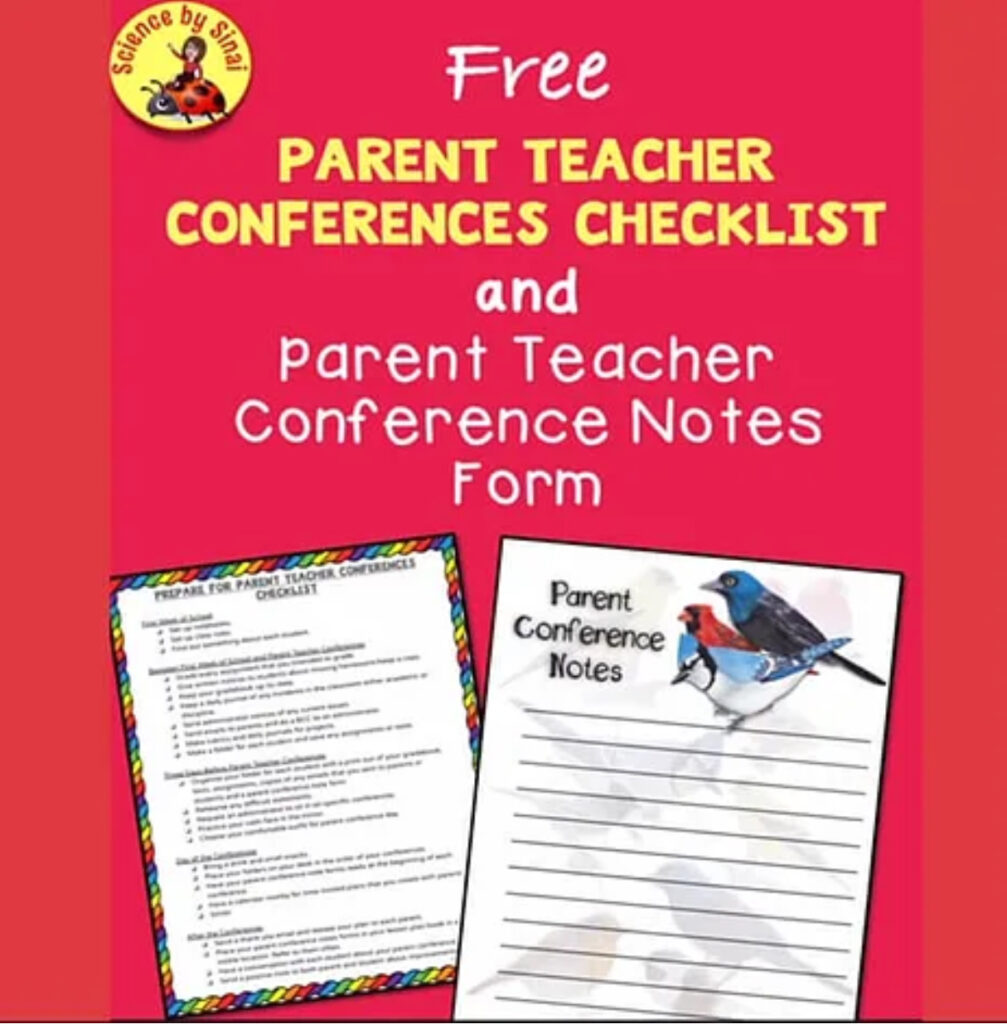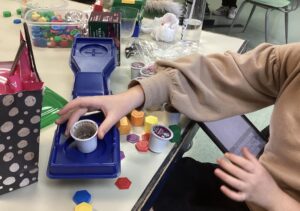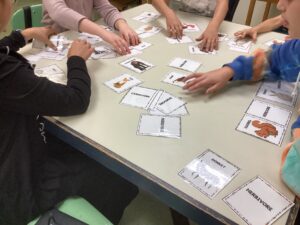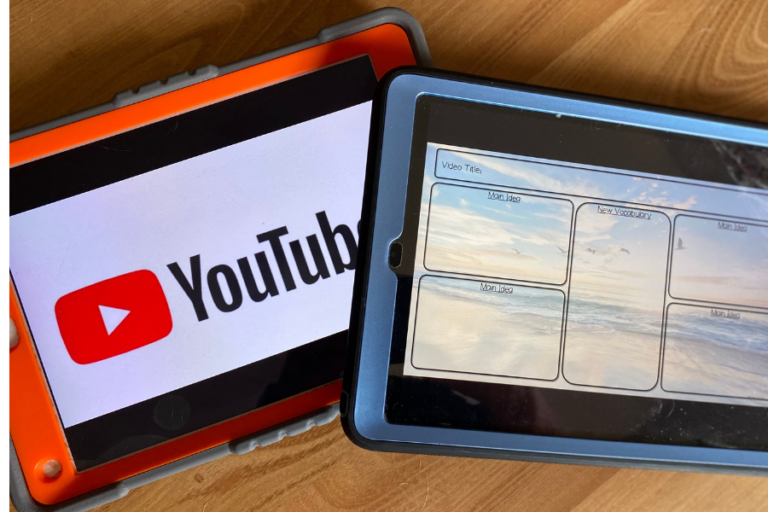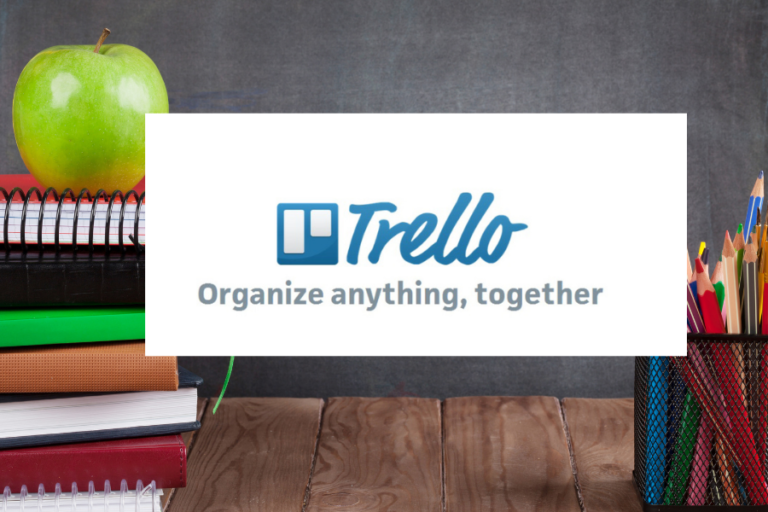Strategies for Successful Parent Teacher Conferences
Does the idea of parent conferences give you anxiety and a lack of confidence?

Strategies for Successful Parent Teacher Conferences
Updated July 16, 2021
Even veteran teachers can be nervous before and during parent teacher conferences! We will discuss ways to make sure you come out looking like the professional that you are, while building relationships with the important people in your student’s lives.
Start Preparing for Parent Teacher Conferences on the First Day of School!
I know this sounds crazy, but it is absolutely true! How you set your tone and organization in your classroom, from the very beginning, will determine the success and happiness of your students. This comfort level will be brought home and make parents less likely to be confrontational about any future issues.
- Set up your interactive science notebook, whether it is digital or paper, right from the beginning with an organized table of contents and clear expectations as to what should be in it.
- Set up the parameters of your classroom and reinforce them every day! What are your rules about going to the bathroom, utilizing equipment and materials, entering the classroom and exiting the classroom.
- Reinforce your rules every day. If you slack off on your commitment to boundaries, then it is not reasonable to ask students to abide by them. This will set up behavior issues. See my blog on 11 Helpful Tips for Teaching Middle School Science
- Develop relationships. Both students and parents will appreciate your deeper insight into a child that you know well.
- Find a positive spark in every student. Start looking for it on the first day of school.
Gather Your Data Throughout the School Year
These days, data is everything. As sad as it may sound, you need to protect yourself more than ever with plenty of evidence that you have done your part, and I’m sure beyond, as a teacher.
- Stay on top of your records and make copies of EVERYTHING.
- Stay on top of your grading. No parent wants to find out two weeks later that their student is missing an assignment.
- Grade most of your assignments as complete/incomplete so you will not feel overwhelmed with grading.
- Keep a daily journal for yourself with any small incident that occurred in your classroom. If you feel it needs to be passed on, send it to your administrator.
- Always keep the administration in the loop, preferably in writing. There is nothing worse than an uninformed administrator trying to deal with an irate parent about a topic that they know nothing about. Trust me, that administrator will not be happy with you at a time when you need their support the most.
- Send emails, using your school communication method, to parents about anything that needs attention. Soften the blow by saying “this is not Johnny’s normal behavior, so I wanted to give you a heads up”. Not only does this protect you if a situation should escalate, but it is also a critical paper trail! Even if the email is not answered it is still time stamped with your information.
- Use rubrics and daily journals for the students during projects. If you look at my blog post from either the magnet mazes or the Rube Goldberg project you will see examples. Keep students accountable over the longer activities.
- Save any assignments or tests, from a struggling student, to show the parent during the conference. Make sure that you have evidence of helping the student.
- Send notes to students either via email, or a paper that you have copied, to remind them to stay on top of assignments that are missing. Again, this will add to your paper trail. It alleviates the common defense of “I didn’t know I owed anything”.
- Send an email or note to both the student and parent if you are noticing a positive change. These go along way!
Several Days Before the Conference
- Put together a folder for each student that you will be discussing that day. This physical prompt alone shows the parent your organization and preparedness.
- Rehearse any difficult statements that you may need to make. A peer or a mentor is great to use as a sounding board for practice.
- Set up having it and administrator sit in on any difficult conference. It is always good to have two sets of ears listening. Plus, this tends to take the wind out of the sales of a parent who is planning on going after a newer teacher.
- Practice your calm face. I’m not kidding! Never will your body language be more important.
- Remind yourself not to be intimidated. That can be easier said than done when the parents are the same age as your own parents when you were starting as a newer teacher. Just remember, you are the professional!
The Day of the Conference
- Choose a comfortable yet professional outfit. There is nothing worse than an irritating waistband, or an itchy sweater, that will drive you crazy. That is the last thing you want to be thinking about.
- Keep a drink on hand, but don’t overdo it if you don’t have frequent bathroom breaks scheduled into your day!
- Have all of your folders ready, in the order of your conferences, along with your parent conference note forms.
The Actual Conference
- Greet the parent with a smile and say how happy you are to meet them or to see them again.
- Briefly state a positive thought about their student. This is where building the relationships comes into play.
- Turn the floor over to the parent and ask them if there’s something that they would like to discuss in the short amount of time that you have together. Don’t assume that there is always something negative, and start on a defensive note. Let them start with any concerns. There might not be any!
- Take notes to show that you are listening, but maintain friendly eye contact. Remember that calm face that you practiced?
- It is very unlikely that a parent will become angry and disrespectful. However, your restraint is very important for your job! In any other aspect of your life, you might let your face show your annoyance with someone speaking to you in a certain tone. This is different. Plus, any reaction from you that shows that they have hit a nerve or if you are even slightly disrespectful, can be used as “evidence“ against you. Again, this is highly unlikely, but not unheard of.
- If a situation should occur, the best course of action is to say “perhaps we should continue this conversation at a later date with an administrator present and when we have more time”.
- Never let a parent try to get you to compare their student to another student. This is guaranteed to backfire on you!
- If you are dealing with a behavior issue in your classroom, ask the parents how they deal with a similar situation at home.
- Come up with a plan together with the parent to tackle any discipline or academic issues. Write it down.
- Share contact information. Find out when is the best time to reach that parent to keep them informed.
- Set a timeframe limit such as “let’s reconnect after trying this plan for two weeks”.
- Thank them for their time and end with another positive statement about their student.
After the Conference
What you do after conference is just as important as the conference itself.
- Send a thank you email and restate your plan to the parent.
- Keep track of all notes and refer to them frequently. There is nothing worse than not following through with your end of the game plan. If things deteriorate, that will be the first question your administration will ask of you.
- Have a conversation with the student discussing how nice it was to meet his/her parents. It is more difficult for a student to act out as much when they know that you have direct communication with the powerful people in their lives.
- Send positive notes to both the student and parents when you see any changes in the right direction!
Conclusion
You made it through! Every parent teacher conference day gives you much more confidence for the next one. As I stated in the beginning, even veteran teachers still get a bit nervous before this important day. The secret is in preparation, starting from day one. Always remember that this is your time to show off your professionalism and creativity. Most parents of middle school aged children have no idea what you are doing in your classroom and usually come away very impressed!


